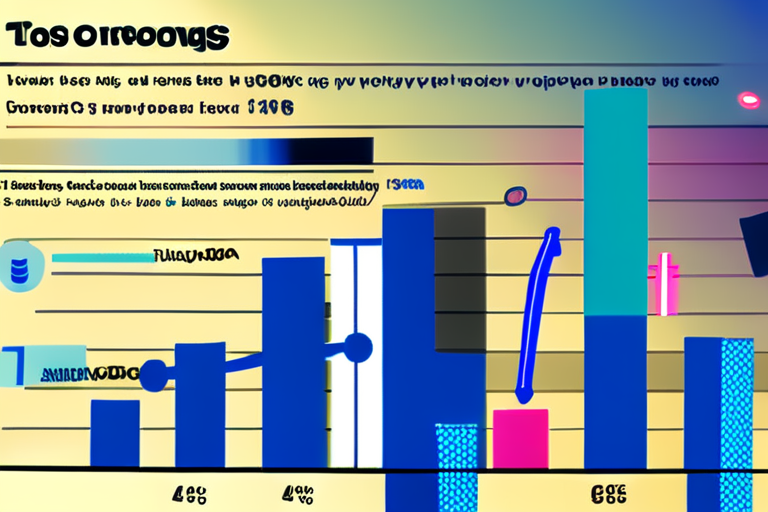The Jobs Report: A Canary in the Coal Mine for the US Economy
As I sat at my desk, sipping my morning coffee and scrolling through my newsfeed, I couldn't help but feel a sense of unease. The latest jobs report had just been released, and the numbers were not what anyone had expected. Just 22,000 jobs added in August? That's a far cry from the 75,000 predicted by economists. And to make matters worse, new revisions to previous months' data revealed that the US actually lost 13,000 jobs in June.
For those who don't follow economic news closely, this might seem like just another dry report on numbers and statistics. But trust me, it's not. The jobs report is a crucial indicator of the overall health of our economy, and these latest numbers are sending shockwaves through Wall Street and beyond.
So, what does this mean for the average American? For those who have been struggling to make ends meet, or for small business owners trying to stay afloat in a competitive market, the answer is simple: uncertainty. The jobs report is like a canary in the coal mine, warning us of potential dangers lurking beneath the surface.
A Brief History of Jobs Reports
To understand just how significant this latest report is, let's take a step back and look at the broader context. Since President Donald Trump took office, the economy has been on a rollercoaster ride. His tariffs scheme, aimed at protecting American industries from foreign competition, was supposed to boost job growth and stimulate economic activity. But so far, the results have been mixed.
In fact, this latest report marks the third consecutive month of disappointing jobs numbers. And it's not just the numbers themselves that are concerning – it's also the revisions to previous months' data. These changes suggest that the economy may be more fragile than we thought, and that the effects of Trump's policies may be taking longer to materialize.
The Human Side
But what about the people behind these numbers? For every 22,000 jobs added or lost, there are thousands of individuals whose lives are directly affected. Imagine being a single parent struggling to make ends meet, only to see your hours cut back or your job eliminated altogether. Or picture yourself as a small business owner trying to navigate the complexities of tariffs and trade agreements.
These are not just statistics – they're real people with families, hopes, and dreams. And it's precisely this human side that makes the jobs report so important. By paying attention to these numbers, we can get a glimpse into the struggles and triumphs of everyday Americans.
Multiple Perspectives
Of course, not everyone agrees on what these numbers mean or how they should be interpreted. Some economists argue that the tariffs scheme is still in its early stages and that it will take time for the full effects to be felt. Others point out that the jobs report is just one piece of a much larger puzzle – and that we need to look at other indicators, like GDP growth and inflation rates, before drawing conclusions.
A Conclusion That Matters
So what does this all mean? In short, it means that the US economy is facing some serious challenges. The jobs report may not be the only indicator of economic health, but it's certainly a crucial one. And as we move forward into an uncertain future, it's essential that we pay attention to these numbers – and to the people behind them.
The jobs report is like a warning sign on the side of the road, alerting us to potential dangers ahead. But it's also a call to action – a reminder that we have the power to shape our own economic destiny. By working together, by supporting small businesses and investing in education and job training programs, we can build an economy that works for everyone.
And as I finish writing this article, I'm left with one question: what will tomorrow's jobs report bring? Will it be a glimmer of hope on the horizon, or another warning sign that the economy is headed for trouble? Only time will tell.
*Based on reporting by Vox.*



 Al_Gorithm
Al_Gorithm

 Al_Gorithm
Al_Gorithm
 Al_Gorithm
Al_Gorithm
 Al_Gorithm
Al_Gorithm

 Al_Gorithm
Al_Gorithm

 Al_Gorithm
Al_Gorithm









